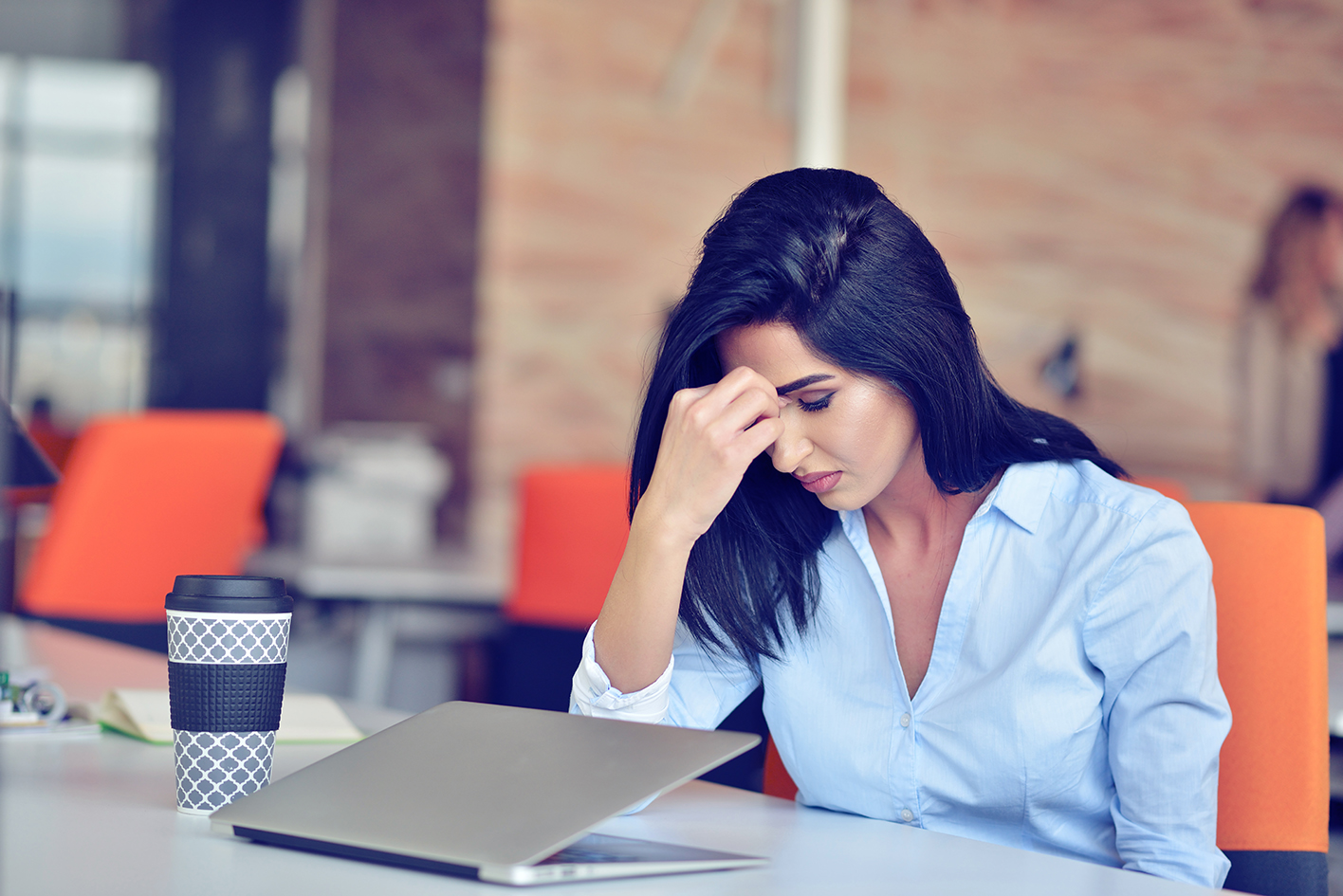A lot has changed in the past few years. Along with a global pandemic, and Greggs making their sausage rolls vegan, we are also starting to become a bit more open with our mental health. Naomi Osaka made headlines around the world when she became the first player ever to withdraw from a tournament due to mental health concerns, and she will certainly not be the last. And it’s not just athletes, even the Royal Family are getting in on it with Prince Harry opening up about his struggles.
While this is all is wonderful in helping to take away the stigma, sometimes reading article after article can make us feel very confused with the same words keeping cropping up again and again.
Take anxiety for example, it’s certainly a word that seems to dominate any discussion around our mental health. According to the charity Mind, 1 in 4 of us living in the UK have reported experiencing a mental health concern and anxiety is among the most widespread but have you ever stopped to ask yourself the basic questions? Like what is it? What causes it? How do we treat it? If you are a little lost trying to understand it all you are in the right place. Here is a quick guide to everything you need to know about one of the most commonly diagnosed mental health problems in the UK.
What is anxiety?
To put it very simply, anxiety is our brain’s way of letting us know it’s really worried about something. Our brains perceive a threat and decides it needs to protect us by sending our body signals that we are in fight or flight. Our heart rate rises, we start to get sweaty, we might clam up, have an overwhelming desire to run away, and find it difficult to concentrate.
Now a certain level of anxiety is perfectly normal. Anxiety is something we all feel, and we all deal with, and is usually nothing to be concerned about. If you sat across from a therapist and said you were really worried about an upcoming exam you had coming up it would not raise much of an eyebrow. Also, could you imagine not being sweaty and nervous when in the middle of a job interview or a driving test?
Anxiety disorders, however, are when these feelings persist and when our brains are so focused on potential dangers it stops us from living a normal day-to-day life. They can stop us socialising with friends, doing well at school, or being productive at work.
Our bodies and minds reacting with total dread at an unfamiliar or stressful situation are perfectly fine, though still unpleasant if it only happens occasionally, but for those with an anxiety disorder it’s not just occasionally, and the perceived threat may not even be real. Now if you sat across from a therapist and said you were really worried about failing an exam so much you could not sleep and were considering dropping out of your course, even though you have passed all your previous exams just fine and your professor does nothing but tell you how amazing you are? Yeah, that may raise an eyebrow.
I want you to imagine a smoke alarm. You would not want to be in a house without one, would you? Of course not. It’s there to keep you safe and to let you know when something really bad is happening. However, there is a big difference between it going off to let you know your house is burning down versus it going off to let you know you have slightly burnt your toast. Anxiety is the same thing; the warning system is needed but it’s become way too sensitive.
Common symptoms of anxiety include
- Excessive worry
- Irritability
- Difficulty sleeping
- Edginess
- Impaired concentration
- Muscle aches and soreness
- Indigestion
- Headaches
If these symptoms are persistent for 6 months or more and if they are stopping you from living a happy and healthy life, it may be time to seek some help.
Why do I have it?
Anxiety is actually a pretty useful response. Think about it, imagine if you were a caveman and you had a saber-toothed tiger running at you, having your brain’s first instinct being to run away or to defend yourself is what you need. If you were totally chilled out during that encounter, it probably would not have ended very well for you, and perhaps very well for the tiger (though they are now extinct so really who won that battle?) Even for us, modern humans’ anxiety can be very helpful. It can make us alert when we are crossing the road or avoid wandering too close to a cliff edge.
We are not 100% certain of the causes of anxiety disorders bur certain factors might make you more likely to develop it. Some of these include
- Other mental health disorders – Fish and Chips, Salt and Pepper, Posh and Becks, some things just come in pairs, and having other mental health issues such as depression raises your risk for anxiety disorders.
- Trauma
- Substance abuse.
- Low self-esteem.
We can also develop anxiety for no reason because our brains are just wonderful like that.
Was I born with it?
No, you were not born anxious, it does not define you. It is usually learned in our family of origin.
We inherit a lot of things from our parents. Hair colour, eye colour, the family silver, however, bad habits and behaviours are also learned. So we don’t inherit anxiety, we just either learn it or are subjected to situations at a young age that can cause anxiety to move up a gear.
Research does suggest that anxiety does run in families, however, nothing concrete has really been concluded as environmental factors are just as important.
How do we treat it?
Good news. There are many ways to treat anxiety.
- Visit your GP – Medications can be used to help treat anxiety and its symptoms. Certain anti-depressants can be used to treat both anxiety and depression or you may be prescribed an anti-anxiety medication. In some circumstances, you may be prescribed a benzodiazepine, but these are only designed to be taken short-term to relieve the symptoms.
- Therapy – Talking therapies such as CBT have been shown to have great success in treating anxiety. They will look at triggers, thought patterns, and thought diaries to help improve symptoms.
- Healthy lifestyle – Being physically active, getting enough sleep, and eating a healthy diet can have a positive impact on anxiety. Exercise is a powerful stress reducer and not only that, but your body will love you so it’s a win-win.
- Avoid drugs and alcohol – recreational drugs and alcohol can worsen anxiety.
- Get to know your disorder – Be proactive. Start a journal so you can keep track of your personal life. Know what causes you stress and what situations cause your anxiety to worsen. Anxiety is a broad term for some very broad symptoms and it affects us all very differently. The best thing to learn is how it’s impacting you specifically. Know what triggers you, what causes you stress, and when. Think about the important events of your past and what is causing you to worry now.
- Stay in the moment – Sometimes we feel anxious because of an event that happened years ago, or we are fretting over a future that has not happened yet when what we really need is to stay in the present. Remember 5, 5, 5. Inhale deeply for 5 seconds, hold it in for 5 seconds and then breathe out for 5 seconds. Do this for one minute and you will feel instantly calmer.
- 5-4-3-2-1 – It’s simple and powerful. If you are feeling overwhelmed take some deep breaths and make a mental list of 5 things you can see, four things you can touch, three things you can hear, two things you can smell, and one thing you can taste. It’s designed to keep you grounded and to stop your brain from spiraling.
- You are not alone – Anxiety is incredibly common and is nothing to be ashamed about. Mental health can make us want to hide away but what we really need is people. Talk to you your loved ones, visit friends, and don’t avoid social activities and hobbies. It may feel really good in the short term to isolate yourself but in the long term, it can have a devastating impact on us.
- Meditation, Yoga and Mantras – To keep us centred and in control.
Can I get rid of anxiety?
The short answer is no, the long answer is also no. We need anxiety, the fight or flight response is one of the oldest parts of our brains and we would be pretty lost without it. We can’t get rid of anxiety because we need it to keep us safe in what can be a pretty scary and dangerous world. We can’t get rid of our smoke alarms without putting ourselves in danger so rather than thinking about getting rid of it instead focus on managing the symptoms. With the right help and support, it can be managed so you are free to live a happy and fulfilling life. A life without anxiety is not possible, but a life being ruled by anxiety is not recommended either. Learn to manage your anxiety so it doesn’t manage you… and check the batteries in your smoke alarm!
We can help…
The Therapy Coach has an exceptional team of CBT Therapists who work online. The model of CBT therapy transcends well online. We do offer some face-to-face sessions in Glasgow and Broxburn but are limited by government guidelines.
If you need to talk to someone about dealing with anxiety, call us on 0808 175 0229 or use the form on our Contact Page.


